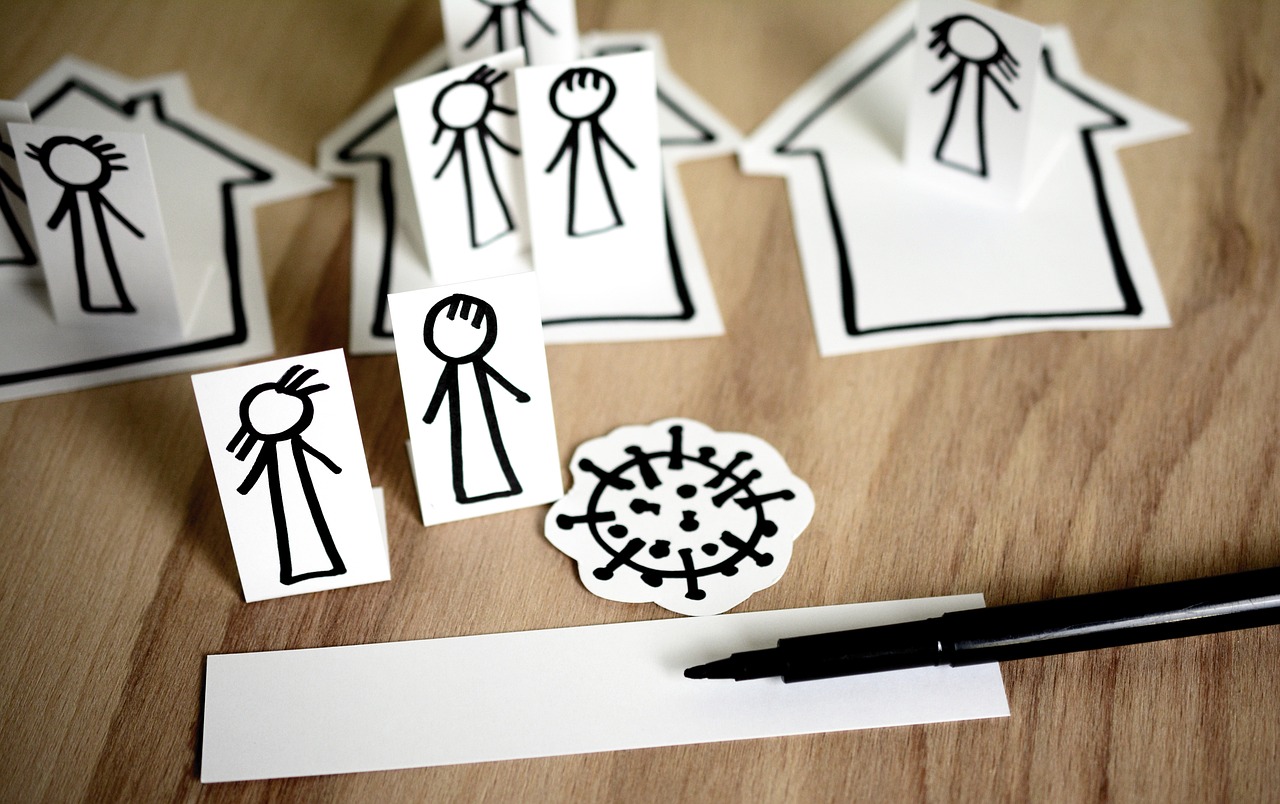A large-scale survey was carried out across different countries to understand what people thought about the actions taken by governments and citizens at the beginning of the COVID-19 pandemic.
We found that most of the people surveyed believed that it was important to follow measures to control the spread of the virus, and many of them followed these measures. However, they thought that their own government and the people in their country were not doing enough to fight the pandemic. They also underestimated how many others in their country actually supported strong actions against the virus. We discovered that people who strongly believed in following the rules were more likely to follow them, and their beliefs about how others and the government were responding to the pandemic played a role in this. We also found that lockdowns made people more hopeful about how others and the government were dealing with the pandemic, and it had positive effects on their mental well-being. These effects were even stronger for people who had strong beliefs about following the rules. Our findings show that social norms can develop quickly and effectively to encourage cooperation on a global scale.
Please keep participating: covid19-survey.org.
L. Hensel, M. Witte, A. S. Caria, T. Fetzer, S. Fiorin, F. M. Götz, M. Gomez, J. Haushofer, A. Ivchenko, G. Kraft-Todd, E. Reutskaja, C. Roth, E. Yoeli, J. M. Jachimowicz, Global Behaviors, Perceptions, and the Emergence of Social Norms at the Onset of the COVID-19 Pandemic, Journal of Economic Behavior & Organization, Volume 193, 2022, Pages 473-496.
We conducted a large-scale survey covering 58 countries and over 100,000 respondents between late March and early April 2020 to study beliefs and attitudes towards citizens’ and governments’ responses at the onset of the COVID-19 pandemic. Most respondents reported holding normative beliefs in support of COVID-19 containment measures, as well as high rates of adherence to these measures. They also believed that their government and their country’s citizens were not doing enough and underestimated the degree to which others in their country supported strong behavioral and policy responses to the pandemic. Normative beliefs were strongly associated with adherence, as well as beliefs about others’ and the government’s response. Lockdowns were associated with greater optimism about others’ and the government’s response, and improvements in measures of perceived mental well-being; these effects tended to be larger for those with stronger normative beliefs. Our findings highlight how social norms can arise quickly and effectively to support cooperation at a global scale.
Press Coverage & Non-Technical Summaries
2020
Alternatives Economiques (France) 🇫🇷, Bloomberg (UK) 🇬🇧, El Pauta (Chile) 🇨🇱, Gallup (US) 🇺🇸, Jakarta Globe (Indonesia) 🇮🇩.
Participate and see results: www.covid19-survey.org.
Social Media Summary
Do people adhere to #SocialDistancing? How do they perceive the response to #COVID19? We shed some light on these Qs drawing data from 100k #covid19study sample from 58 countries. Please KEEP PARTICIPATING https://t.co/kp5Eo24ahZ. Paper https://t.co/jOuIV3mRNc some thoughts 1/… pic.twitter.com/iZ8LzKrXVT
— Thiemo Fetzer 🇪🇺🇺🇦 – same handle elsewhere (@fetzert) April 16, 2020
